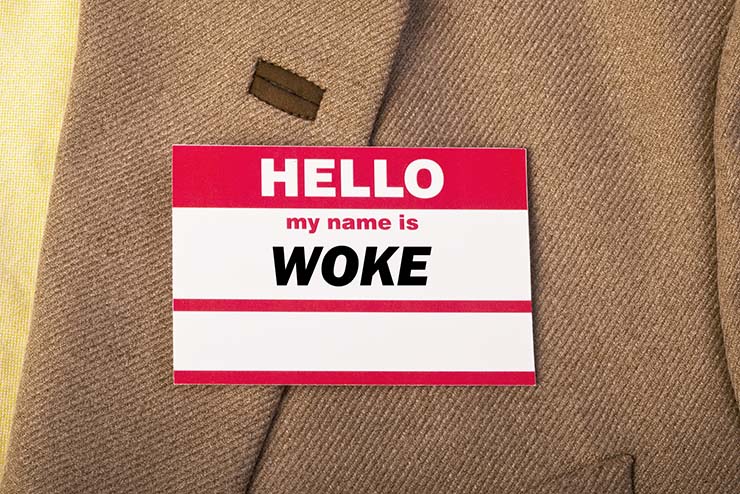Neil Shenvi, an Evangelical theologian and theoretical chemist, has been lately pointing to Sam Francis and me as veritable pillars of the so-called “woke right.” This is what he says on this subject while quoting something I wrote for Law and Liberty last year: “Here’s fellow New Right philosopher Paul Gottfried just last year: ‘Like Sam Francis and much of the European Right, I accept Gramsci’s view that the ruling class shapes the consciousness of those it dominates.’” According to Shenvi, those on the right who make such assertions are really on the left. Moreover, since Sam and I supposedly praise Frankfurt School critical theorists, we thereby betray the leftist sources of our thinking.
But there is a serious problem with this ascription. Although Shenvi seems to be genuinely erudite in his own areas of scholarship, he never demonstrates that there is anything called the woke right or that Sam Francis and I are prime illustrations. A more general criticism of Shenvi’s analysis of “wokeness” in American Reformer, by a fellow Evangelical Benjamin Mabry, makes the telling point that Shenvi can’t encounter anyone on the right who talks about “social hegemony” or who criticizes the idea of an American global empire without declaring them to be “woke.” He automatically links these suspect individuals to the Frankfurt School and cultural Marxism.
Unfortunately for this practice, the favorable reference to the Italian Marxist Antonio Gramsci that Shenvi attributes to us has nothing to do with the Frankfurt School. Gramsci never belonged to that sect. This Sardinian social critic of the left developed his understanding of class consciousness partly while a prisoner of the Italian fascist government in whose custody he died in 1937, leaving behind his prison notebooks (Quaderni del Carcere). Although a cofounder of the Italian Communist Party, Gramsci offered an interpretation of Marx’s view of class struggle that reveals very little of orthodox Marxism. Gramscianism only defends Marx’s materialist view of history and society in a derivative way; it’s really about cultural consciousness and those who create it.
Sam and I both accepted, with some modification, Gramsci’s view of “ideological hegemony.” We believe, like Gramsci, that those in power shape how others process reality, although unlike Gramsci we view the (predominantly leftist) managerial class and its allies, rather than the capitalist owners of productive forces, as being the ones who now control us. Moreover, this managerial ruling class determines the ideological persuasion of those they rule. It therefore falls on those who wish to break this hold to encourage a revolt against it, which is an activity that the populist right is now engaged in.
It may be an indication of how little conservative establishmentarians thought outside the box until recently that they couldn’t figure out the extent of this ideological entrapment. Their recent efforts to point out the cultural and moral control that the left has assumed in our society are certainly to be welcomed, although we might hope that authorized conservative celebrities stopped describing their enemies anachronistically as “Marxists.” What they face is an epidemic of moral and cultural perversion that has been unleashed by managerial and media elites.
Allow me to call attention to another one of Shenvi’s misunderstandings. It is entirely possible for those on the right or left (before the wokesters utterly polluted that side) to learn something by reading those who don’t share their political views. Marx was heavily influenced by the critical assessments of capitalism coming from British Tories in the 1840s and from German conservatives around the same time. And even while the social historian Eugene Genovese described himself as a Marxist, Southern conservative historians were quoting favorably from his scholarship on the antebellum South. Why must self-avowed rightists only cite the writings of authorized “conservative” authors, or those whom our conservative establishment would urge us to read?
Finally, there is an obvious contradiction in Shenvi’s operative term “woke right” that lots of commentators have noticed. Flinging around the term “woke right” is like calling someone “a counterrevolutionary feminist,” a “philosemitic Nazi,” or a “Christian atheist.” Certain word combinations don’t work, except for their shock effect. That is clearly the purpose of branding members of the traditional right who cite leftist authors of an earlier generation as members of the “woke right.” One thereby reads undesirable intellectuals out of the conservative communion, by treating them as somehow allied to the woke left.
By now, the trick of identifying those on the uncooperative right as being leftists in disguise may be showing signs of age. This has long been a favorite weapon of the conservative establishment as it works to keep paleoconservatives and other members of the traditional right from joining the conservative conversation. By referring to those outsiders as wokesters, the establishmentarians hope to justify their continued exclusion. Let’s hope this is not what Shenvi intends when he call us “the woke right”!

Leave a Reply